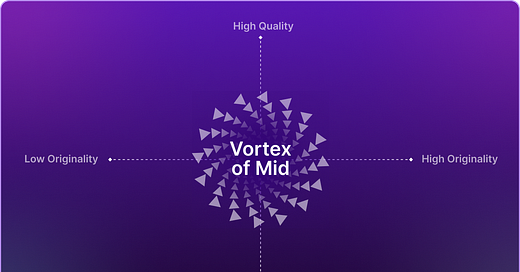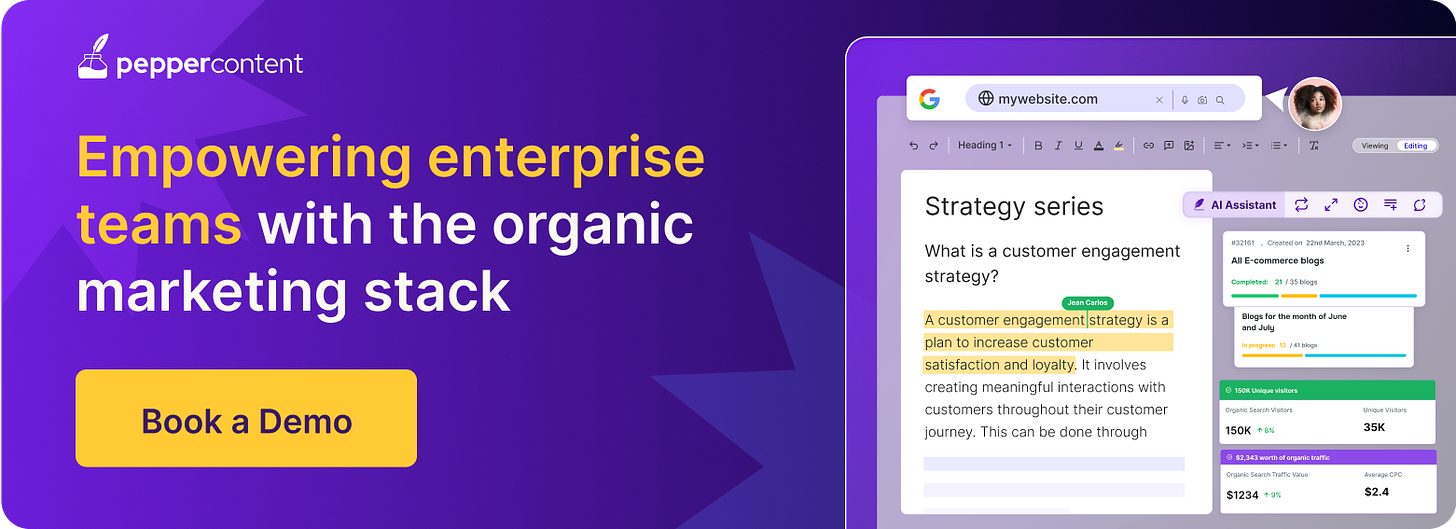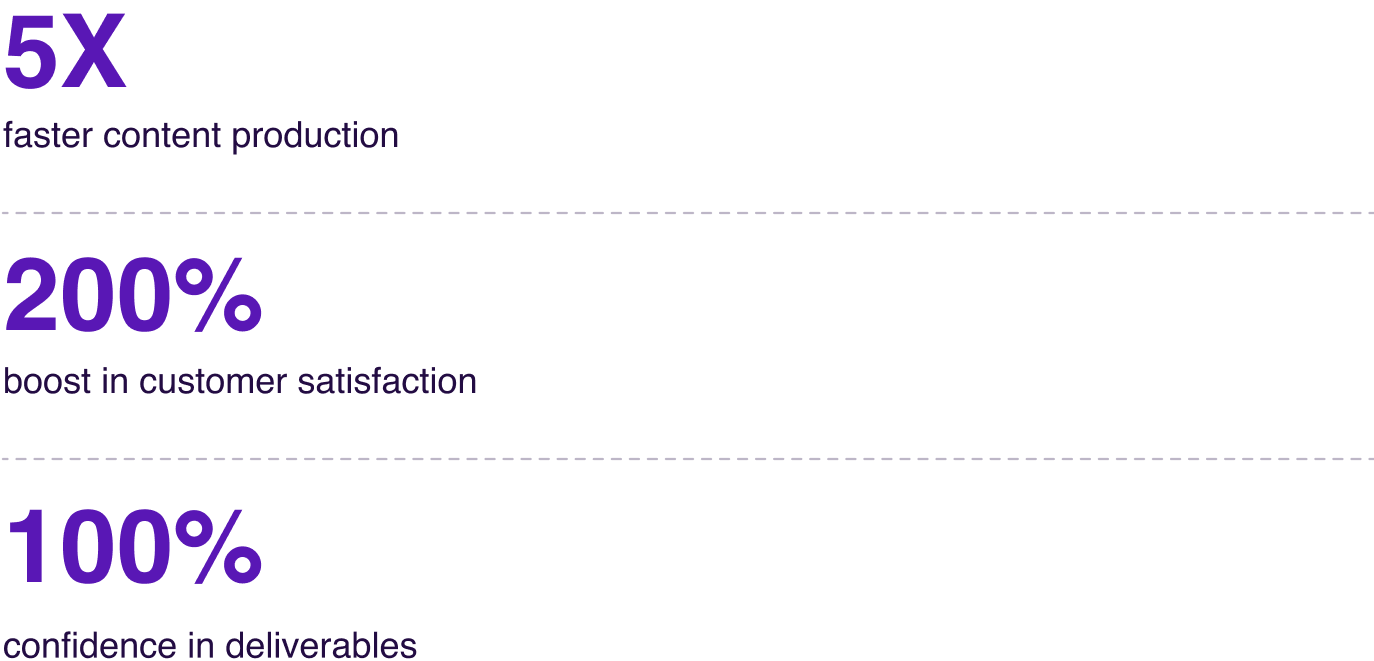One question has been bugging me ever since ChatGPT came out: Why are we so thirsty to AI-ify all our content when we know it’s a race to the middle?
Frontier AI models like ChatGPT, Claude, Gemini, and Llama are mid by design — they learn to generate text from the most common patterns in their training data, which is comprised of everything their makers could scrape off the internet.
These models are then refined through Reinforcement Learning from Human Feedback (RLHF for those in the know), in which humans rate the AI output. These fine-tuners sway the AI toward safe, inoffensive outputs, resulting in further “midification.”
To give AI its due, it's a better writer than most people. I’d rank the writing skills of the most advanced model today, Claude Sonnet, in the top 15% of all humans. But by nature, it’s still an averaging out of everything on the internet, and thus creates a vortex that sucks you back toward the middle.
With the right prompting, you might get a veneer of originality (AI is skilled at connecting ideas) and reach the upper-middle class of all content. And for many marketing leaders, that’s totally fine. Marketing teams have to produce tons of commoditized content: landing pages, derivative SEO articles, nurture emails, etc. It’s okay to produce B or B+ versions of glorified press releases using AI if that means your time-strapped content team gets to work on something more creative.
But it’s an issue when you rely on AI for things like thought leadership. Writing is thinking. When writing is hard, it’s because you’re figuring out what you think. When you use AI for your first draft, you anchor yourself to the output and eviscerate any chance of saying something original.
By all means, use AI for commoditized content — as long as you have a human with good taste punch it up. But if you want to stand out, build trust with your customers, and create an industry-defining brand, don’t outsource your most important content to AI and spam your audience with mediocrity at scale.
If you do, you’ll risk getting sucked into the Vortex of Mid.
The AI Hype Matrix maps the latest AI news stories across an unimpeachable scale of Hype (everyone is talking about this!) and Fear (will this kill my career? Will this kill EVERYONE?). Here’s this week’s rundown.
In the latest battle for search supremacy, OpenAI unveiled a prototype of its highly anticipated Google rival, SearchGPT. Also in AI search news this week, Perplexity announced its Publishers’ Program, a rev-share deal intended to make nice with the content creators it’s been… “borrowing” from.
Publishers aren’t the only ones peeved at unregulated AI: Video game performers are striking over the industry’s use of the technology. Meanwhile, the FTC is investigating AI-enabled “surveillance pricing,” and, in another Black Mirror plotline, Meta’s AI Studio is ushering in a new era of AI-enhanced influencer culture.
In the “if you can’t beat ‘em, join ‘em” category, Adobe announced new Firefly AI tools for Illustrator and Photoshop, and GE teased a partnership with Amazon Web Services to develop a new AI model for its HealthCare division.
What type of content drives the most traffic?
A pair of studies by NP Digital found that while many marketers are going all-in on algorithms to create content, AI-generated articles drive significantly less traffic than those written by humans. A whopping 94% of the time, human-written work outranked AI-created content. In other words: a human touch still goes a long way.
Content pays dividends for fintech app CRED
CRED, a credit card bill-payment platform with 7.5 million members, wanted to scale its content creation for product listings. The rewards and payments app hoped to meet growing demand for diverse content types, cater to a wide audience, and improve conversion rates.
So, the app teamed up with Pepper Content, tapping into a network of 65,000+ creators and strategic content-planning experts. Ultimately, this team of human + AI collaborators helped CRED churn out optimized product listings faster than you can say "cashback," freeing up their in-house team to focus on innovation.
The payoff? A 5X boost in content production speed, 100% confidence in deliverables, and a 200% surge in satisfaction levels. Talk about rewards that keep on giving.
Read more about how CRED and Pepper Content are tapping into the power of human + AI creativity.
The anti-marketing campaign
Reverse psychology is a powerful thing — especially in advertising. You’ve seen it in action in Volkswagen’s "Lemon" ad, Patagonia’s "Don't Buy This Jacket" plea, and Carlsberg's self-aware “probably NOT the best beer in the world” campaign. This week’s exercise pushes you to embrace the art of anti-selling. By deliberately downplaying or even criticizing your product, you might just pique curiosity and leave a lasting impression.
Suggested prompt text:
"Create a marketing campaign that intentionally 'anti-sells' [your product, brief explanation of product]. Highlight how this messaging might paradoxically increase interest."















